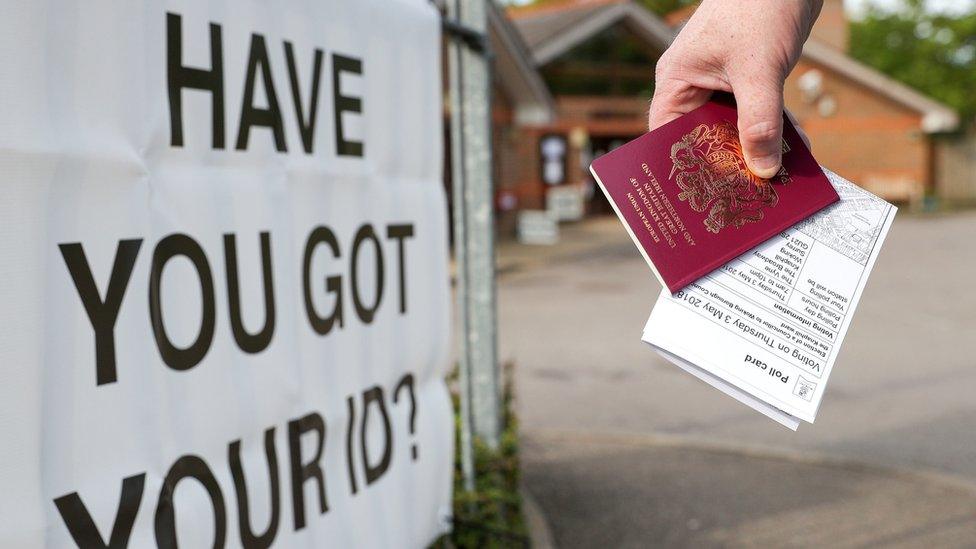London mayoral election: What do Londoners want?
- Published
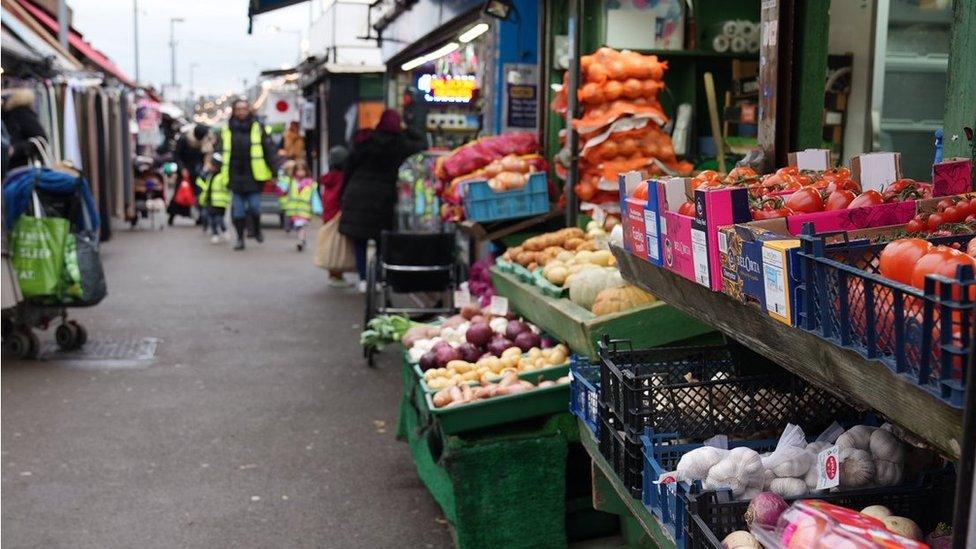
Traders and shoppers in Shepherd's Bush market were asked what their concerns and priorities were as the election looms
We can expect a flurry of activity over the next 44 days as all the mayoral candidates set out their stalls for why they think they should run London.
There will also be elections on 2 May to select the 25 members of the London Assembly, which holds the London mayor to account.
Issues range from housing, to transport, to crime.
In Shepherd's Bush Market I asked some shoppers and traders what mattered to them.
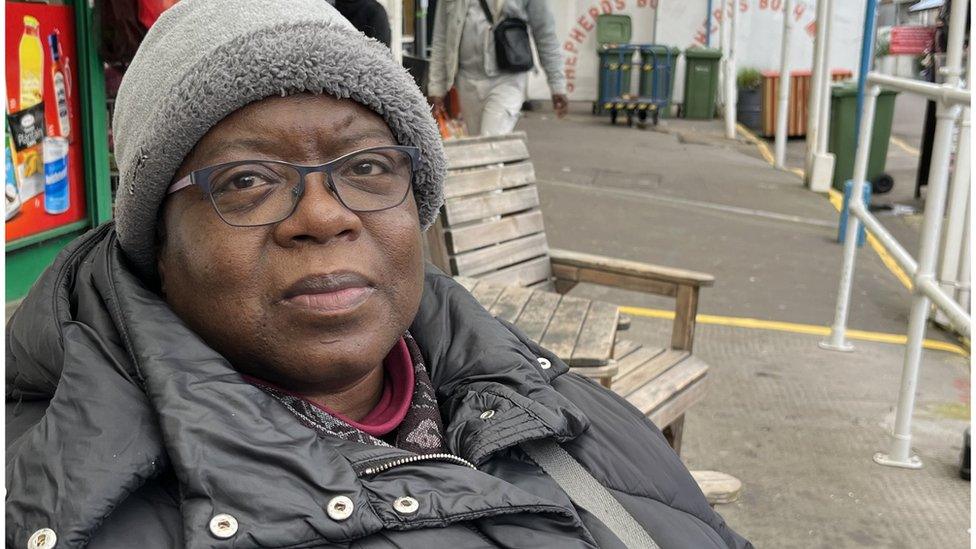
Pauline has started using the bus because of restrictions put on drivers in the capital
Pauline, who was taking a break from browsing the stalls, said she did not know if she would vote for anybody.
She told me she found driving around London a struggle these days because of restrictions imposed on drivers.
So she had started catching the bus, and took the bus from her home in Wembley that morning to shop at Shepherd's Bush Market.
She told me she was "reasonably pleased" with the local bus services, but that the issue she wanted any future mayor of London to deal with was crime.
She said: "The other day someone broke into [my aunt's] house. She was home. The person kicked in the door. I feel terrified now.
"The [mayoral candidates] promise everything and nothing gets changed.
"Can you trust the police? That's another thing."
The number of burglaries in London is lower than it was when Sadiq Khan first became mayor in 2016, but trust in the Metropolitan Police - which the Mayor of London oversees, has been battered by a series of shocking events.
The damning findings of the Louise Casey review a year ago described the Met as "institutionally racist, misogynistic and homophobic".
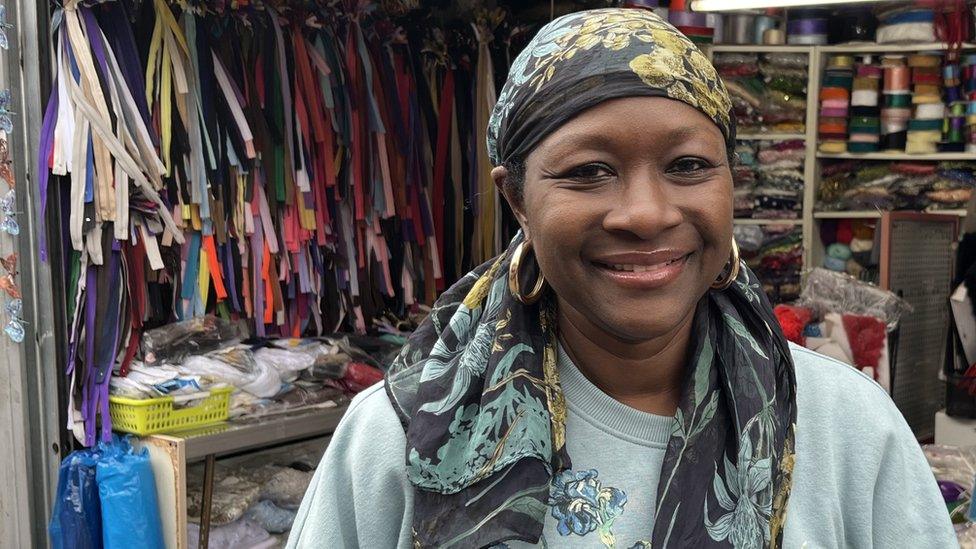
Sharidin's main concern is knife crime
Market vendor Sharidin, who runs a stall selling thread and fabrics, supports Labour.
She said knife crime was an issue that stood out for her: "It feels like it's a culture. It is getting worse."
Tony runs a stall selling women's underwear. He said Londoners need to be more positive and try to solve problems themselves instead of expecting politicians to do it for them.
His one bugbear was the rising cost of council tax.
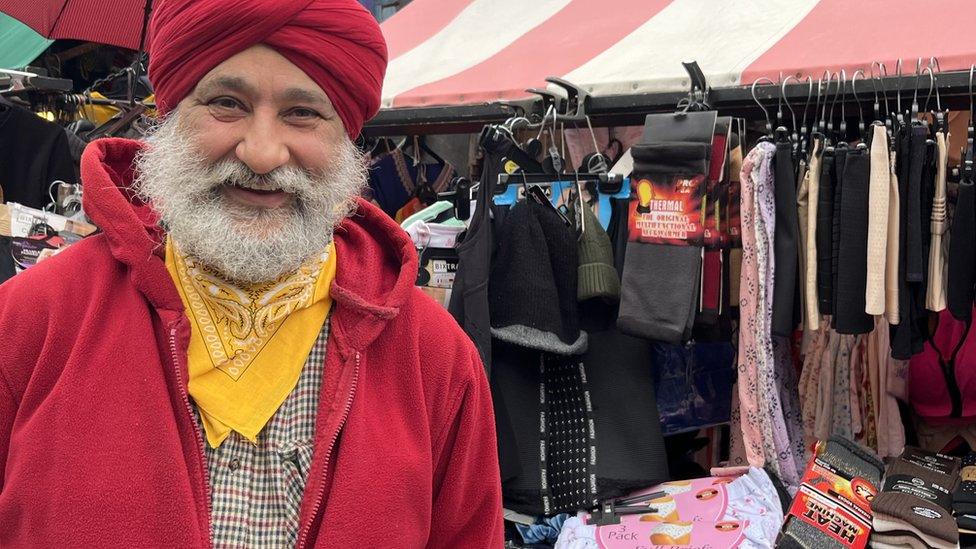
Tony thinks Londoners need to be "more positive"
Part of the council tax goes towards funding the Greater London Authority, which spends the money it gets on things like policing and transport.
From April the mayor of London's allocation of the amount Londoners pay will go up by just over £37. An average band D property will be paying £471 a year.
Tony said he wants the newly-elected mayor to work more closely with the prime minister to get more funding for local government.
"Of course you have to work with central government [as mayor] because the poor public can't afford to pay any more."
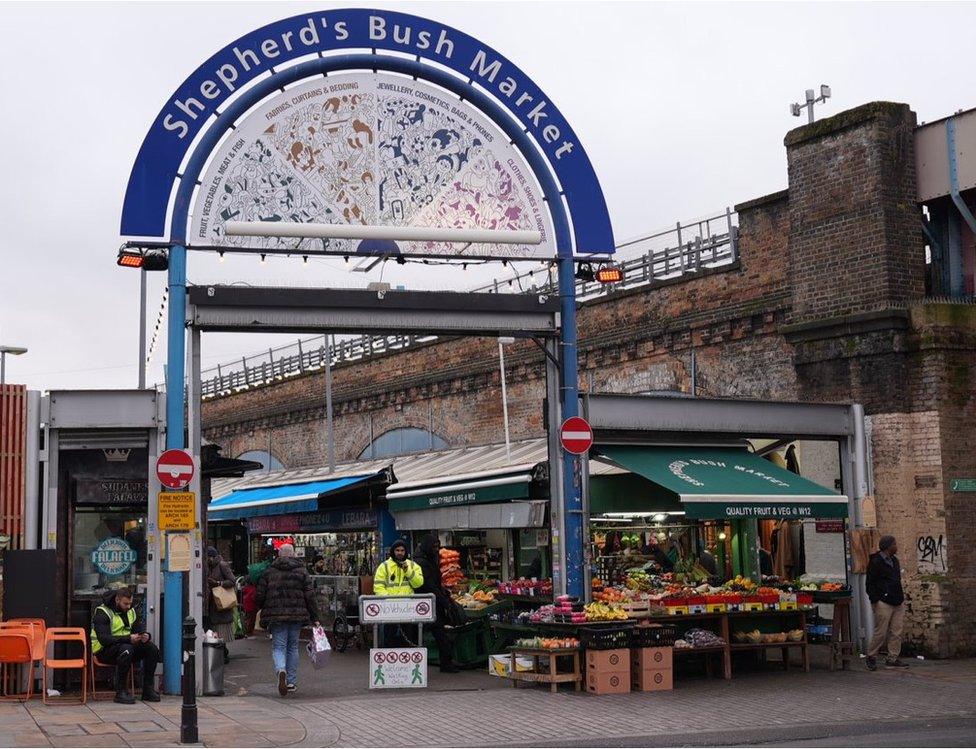
People I spoke to at the market were concerned about crime, council tax, trust in the police and transport
The main candidates so far in this race include the Labour incumbent Sadiq Khan who launched his campaign yesterday with a promise to build more council housing.
The Conservative candidate Susan Hall has promised to scrap the Ulez expansion to outer London; the Green Party candidate Zoë Garbett wants to make London more affordable and Liberal Democrat Rob Blackie, promises to fix the Metropolitan Police.
There are more candidates in the running.
Almost a dozen names are already in the mix and we will find out the final line-up next Thursday, 28 March, when the nominations close.
There will be some key changes to the way Londoners vote as they will choose just one candidate on the ballot paper this time due to a change in the voting system.
Voters will also need to bring acceptable forms of photographic identification with them to polling stations to be allowed to vote.

Listen to the best of BBC Radio London on Sounds and follow BBC London on Facebook, external, X, external and Instagram, external. Send your story ideas to hello.bbclondon@bbc.co.uk, external
Related topics
- Published25 April 2024
- Published29 April
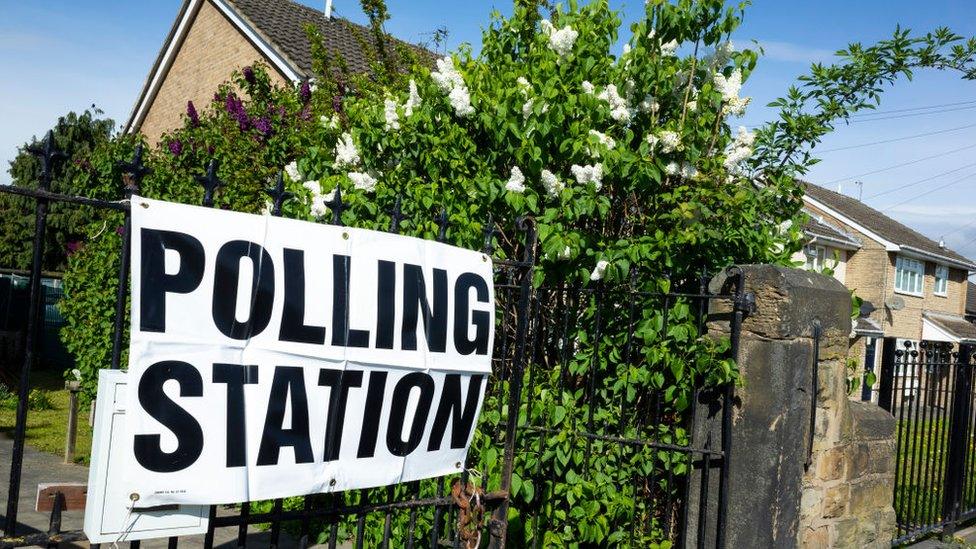
- Published23 June 2023
